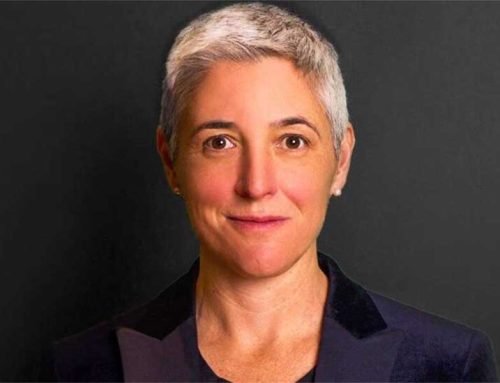In 1992, the United Nations declared December 3rd as the International Day of People with Disabilities. A day of celebration, acknowledging the rich diversity of disabled people throughout the world.
The etymology of the word ‘disability’ can be traced back to the 1640s when its meaning, prefix and suffix combined, was ‘incapacitated’.
Over the centuries, people with disabilities have been perceived as a societal problem. They have been labelled outcasts, pariahs, persona non grata – the rejects undeserving of our time or energy.
Allport’s Scale of Prejudice (1954)
In 1954 psychologist and educationalist, Gordon Allport, developed the Allport’s Scale of Prejudice, which examined the manifestation of societal attitudes to discrimination. A prime example of this can be attributed to the horrors of World War II and the indiscriminate and deliberate destruction of Jewish, Roma and Sinti communities. However, people with disabilities were viewed as a biological threat and classed as a burden on society. Approximately 250,000 disabled people were executed as part of Nazi Germany’s ‘Euthanasia Program’.
Disability Employment Act (1944)
Historic England provides a thorough overview of life for people with disabilities after the Second World War. There was a swathe of over 300,000 ex-servicemen, women and civilians who were classed as disabled. The National Health Service was established and the Disability Employment Act (DEA) 1944 ensured that people with disabilities would have access to employment, housing and support.
Disability Discrimination Act (1995)
It took another 51 years of campaigning, after the DEA, to ensure that the Disability Discrimination Act (DDA) 1995 was passed. Let that sink in for a little while – 51 years! The DDA was the first piece of UK legislation that protected people against various forms of discrimination. It made it unlawful to discriminate against people with disabilities in relation to employment, the provision of goods and services, education and transport. In 1995, The Minister of State in the Department of Social Security stated:
“The bill is the first comprehensive measure to tackle discrimination against disabled people ever brought before Parliament by a British Government …”
Equality Act (2010)
However, there were improvements that should have been made at implementation that were not passed through Parliament until the Equality Act (EA), 2010 was formed. The University of St Andrews provides a synopsis of how the DDA and the EA differ. The EA was ground-breaking in the sense that it protected disabled people against:
-
- Direct discrimination – not just in employment.
- Indirect discrimination.
- A duty to make reasonable adjustments.
The EA has been a step in the right direction and replaced over 116 anti-discrimination laws. There will be, without doubt, adaptations, amendments and corrections to be made to future legislation that will help people with disabilities achieve deserved equity.
It would be remiss not to mention some of the incredible people, throughout history, who have pushed the boundaries of possibility, overcome adversity and displayed grit and determination whilst living with a disability.
Abolitionist Harriet Tubman escaped from slavery in the 1840s. Harriet lived with epileptic seizures and narcolepsy after a slave owner hit her on the head. Her disability did not deter her and she went on to personally free over 70 slaves and became a spy during the Civil War, where she led soldiers to free over 750 slaves.
Stephen Hawking, a British Theoretical Physicist was awarded the US Presidential Medal of Freedom and a lifetime achievement award from Pride of Britain. His most famous and important works involved the discovery that black holes emit radiation, as well as writing A Brief History of Time, which was a Sunday Times bestseller for 237 weeks! Hawking lived with Motor Neurone Disease for more than 50 years.
Australian/American world-renowned speaker, Nick Vujicic was born without arms or legs. but it has not prevented him from reaching into the hearts and minds of people the world over. His ability to motivate and inspire others is testament to one of his mottos: ‘No limbs, No limits, No excuses.’
Ever driven a Segway or attempted to balance on your nephew’s hoverboard? They are both the invention of Dean Kamen, a prolific inventor, multi-millionaire and activist for change. Kamen has over 1,000 US patents for his inventions, one of which is the AutoSyringe that delivers accurate doses of medication. As well as having his own, hidden, disabilities – Attention Deficit Hyperactivity Disorder (ADHD) and Dyslexia – he has been at the forefront of robotics to assist people with physical disabilities in leading a less restrictive life. Kamen invented the iBOT wheelchair, which walks up and down stairs and moves from a sitting to standing position. His passion and devotion for helping people, especially those with disabilities is inspiring.
Sir Lee Pearson is the world’s most successful equestrian Paralympian. He was part of the Para Dressage team at the 2020 Paralympic Games and has amassed 14 Paralympic gold medals. Lee was born with Arthrogryposis, a condition affecting a foetus’s muscles causing joints to have limited movement. He controls horses using his hips.
Ralph Braun is a trailblazer. Diagnosed with muscular dystrophy, he has been in a wheelchair since the age of 14 and, eventually, was unable to walk. He created a motorised scooter, which he called the ‘Tri-Wheeler’. The scooter made him more able, but he still had challenges getting it into his vehicle. That’s when he created a hydraulic tailgate to get him in and out of his Jeep. Eventually, Ralph went on to create a company dedicated to manufacturing devices to ensure vehicles were accessible to wheelchair users.
These incredible people have inspired others with their grit and determination. They have displayed tenacity and are a shining example of their propensity for change by utilising their ‘abilities’ to make the world a better place.
Written by Beverley Nolker, Education Development Officer for Psychiatry-UK and the HLP-U Clinics. November 2021.
Approved by Steve Wilcox, Safeguarding Lead. November 2021.








Leave A Comment